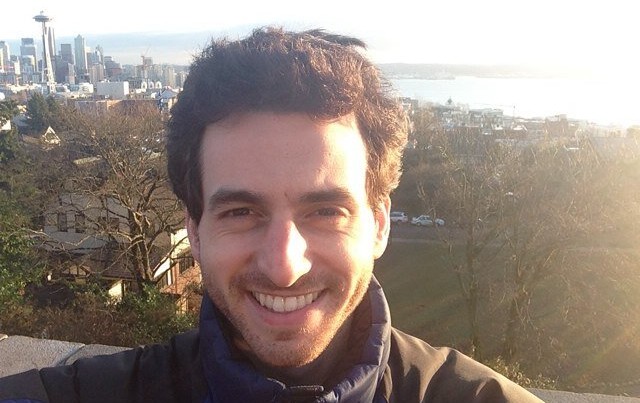Andrew Gordon-Kirsch (1987), a Master’s Degree student at The New School, New York. Born in Berkeley, CA. Gordon-Kirsch has been active in several American-Jewish organizations such as: J Street, The Center for Jewish Nonviolence and Jewish Community Center of the East Bay.
In your opinion, what importance, if any, does the existence of a Jewish state have to you personally and to Jewish people in general?
“Personally – a place to speak Hebrew and meet Jews from around the world. For Jewish people – a place to speak Hebrew and meet Jews from around the world.”
Do you feel committed in some way to defend the future existence of Israel?
“Less and less. The deeper Israeli policy digs into a fascist hole, the more hopeless and angry I get, and the more I want to turn away.”
Do you affiliate yourself with a specific confessional division in Judaism? What is your view regarding the dominance of the Orthodox division in Israel religious establishment?
“I identify as a Reform Jew. I think Israeli government should divorce itself from the Rabbinate. People should be able to get married with or without religious ceremonies and religious officiants.”
Do you feel morally responsible for Israel’s actions (such as its management of the Israeli-Palestinian conflict)?
“Yes. As a Jew I feel implicated and responsible for the actions of the Jewish state that claims to speak for Jews worldwide.”
In your opinion, what is the main thing Israelis fail to understand about the reality of being Jewish outside of Israel?
“Israel’s actions affect the way the world perceives Jews everywhere. I feel less safe because of Israel’s military rule over Palestinians.”
How would you describe Israel’s policy (formally and in practice) regarding its relationship with the Diaspora?
“Entitled.”
In your opinion, does Israel have an obligation to defend and help Jewish communities in need?
“Yes.”
Have you ever been to Israel? if you have, can you summarize your impression from the Israeli reality?
“I lived in Jerusalem for a year and found the tension quite palpable. Arab-Jewish tensions, class tensions. religious-secular tensions. It was not a pleasant environment.”
Can you tell us a bit about the Jewish community in your hometown? Is it organized? Are there community activities?
“Multidenominational, summer camps, many synagogues and minyanim, progressive, one Jewish deli with great music and mediocre food.”

